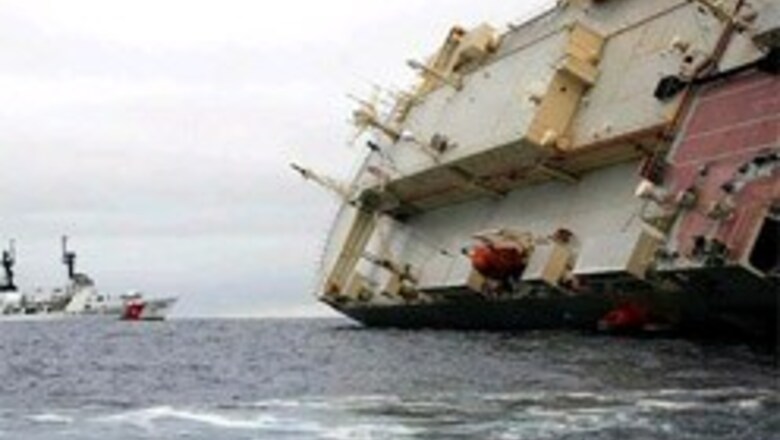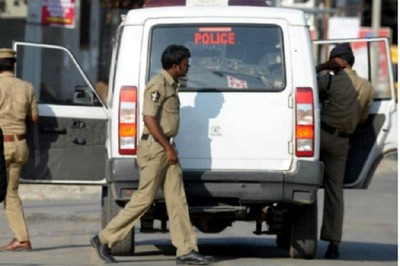
views
Dhaka: Growing human casualties in Bangladesh's ship-breaking industry have made the job of 'recycling obsolete ocean liners' one of the world's most dangerous occupations, officials say.
At least 21 deaths have occurred since January on the recycling yards located along the southern Bangladesh coast, near the harbours of the port city of Chittagong.
Human rights activists put the blame on the absence of minimum safety measures and the lack of quick response to hazards.
According to a recent report, seven workers were killed in one fortnight on ship-breaking yards along the Sitakundu coast of the Bay of Bengal.
The daily Bangladesh Observer added that accidents of relatively minor nature were a routine affair.
Although breaking of scrapped ships to re-use the iron and steel from the obsolete vessels has become an increasingly profitable business, the plight of the industry's workers has received the attention of neither the government's labour welfare department nor watchdog groups under the International Labour Organization (ILO) based in Geneva.
"No monitoring of the working conditions on the ship-breaking yards, including the job hazards faced by workers, has ever been taken up on a regular basis," trade union leader Shahjahan Khan of the Sramik League told DPA.
In the absence of dependable institutional support from any agency, the ship-breaking workers are prey to exploitation by yard owners.
The iron and steel recovered from the old ships are melted and transformed into rods and other construction material.
"Ship-breaking is not officially recognised as an industry and so government focus is lacking," said an official in the labour ministry.
Unofficially, however, the business of ship- breaking has grown rapidly in Bangladesh as both India and Pakistan discouraged the expansion of their ship-breakers for fear of pollution.
However, due to a poor track record on implementing environment protection laws, Bangladesh is a favoured location of ship-breaking operations.
The industry association in Bangladesh claims the recycling yards employ more than 1,000 workers. The group based in Chittagong, 280 km southeast of Dhaka, says another 40,000 people are dependent indirectly on incomes from the yards.
Unskilled and under-age workers are most vulnerable to the dangers of hammering iron plates, poisonous gases trapped inside a ship's hull and leaping oxyacetylene flames. They also run the risk of exposure to radioactivity.
The workers often pay a heavy price for their lack of knowledge of the dangers they can face in their high-risk jobs. On the other hand, the private companies managing the yards hardly supply safety articles like helmets, eyesight protectors, proper shoes and hand gloves.
Civil defence rescuers alleged that many owners were reluctant to report yard accidents to the police to avoid paying compensation.
"Even basic facilities like medical examination and first-aid services for workers are absent," said civil defence official Abdus Shahkur.
Shahkur said many yard workers did not get a weekly day off while some owners often forced workers to do overtime under duress.
"If you ask for a holiday the management shows you the door," said 21-year-old welding mechanic Tapan Kumar.
The yard owners can get away with almost anything, including murder, because of their political links and ties with local police, Kumar said.




















Comments
0 comment